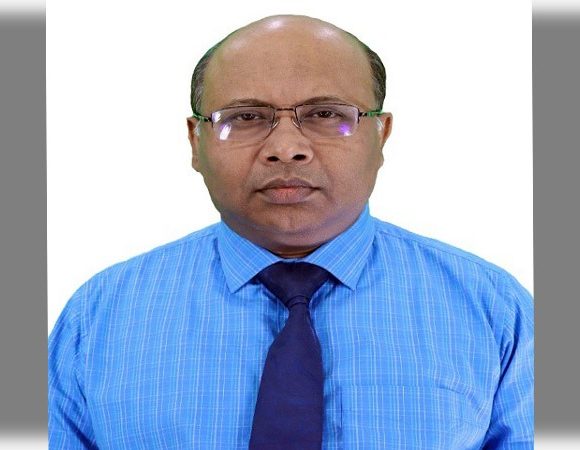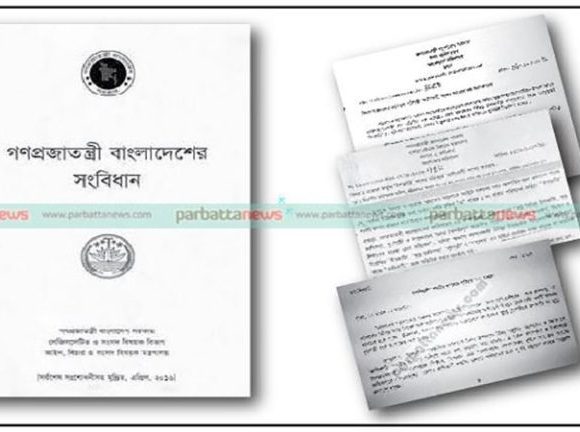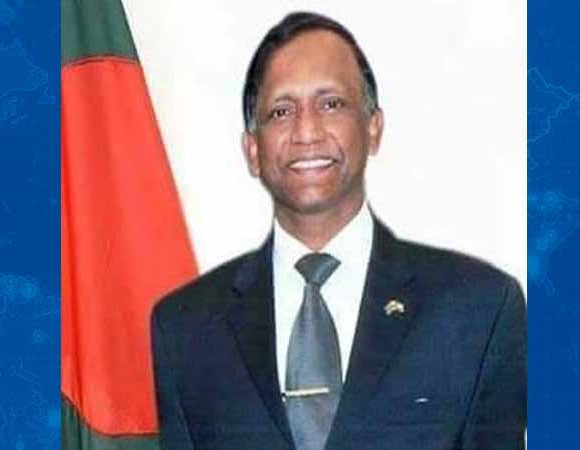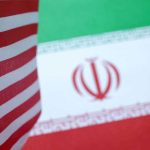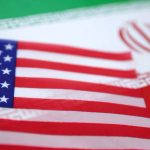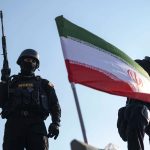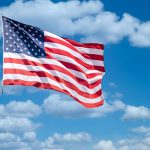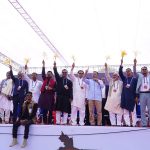Bangladesh Perspective of Human Rights: A Retrospective Analysis with an Eye to the Future 38
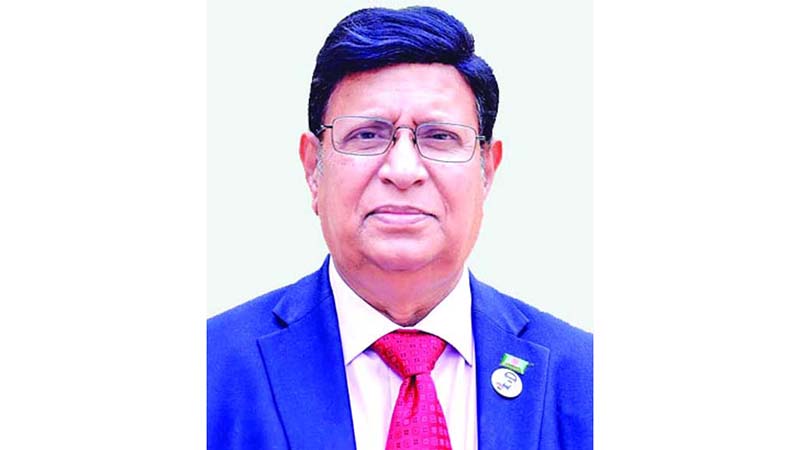
Dr AK ABDUL MOMEN
Bangladesh is probably unparallel in the world in a sense that very birth of Bangladesh was aimed for upholding democracy, human rights and justice. In 1970, when Bangladesh Awami League (AL) won majority votes to form the new government (out of 299 seat election AL got 167 plus 32 =199, PPP got 86) the then Pakistani military junta conspired with a majority party of west Pakistan (PPP) to deny and reject the voice and decision of the people. Subsequently, when the Bengali nation started fighting for justice and to establish people’s mandate, genocide was let loose on the unarmed people of then East Pakistan by the Pakistani oppressive rulers. If independence, democracy, human rights and justice have a price to pay, Bengali nation paid the price with 3 million martyrs, 200 thousand dishonored women and 10 million refugees. In addition, 30 million people out of 75 million were dislodged from their homes. Subsequently, after paying such a high price, we have achieved our independence to uphold democracy, justice, human rights and human dignity. It comes to me as no wonder, when I see, each and every one of this country is a strong believer of human rights, justice and fairness. So, when we hear, at times, advice of others to teach us the principle and value of human rights, we feel pity as many of them practiced slave trades, apartheid, exploitation and extreme subjugation of people. I feel pity that they are trying to teach Bengali nation something for which Bangalees made the highest sacrifice possible.
Before delving deeper into the topic, let us take a walk down the memory lane. From the very beginning of our journey as an independent country, the Bangladesh Awami League was very resolute to establish rule of law and within 10 months it adopted the Bangladesh Constitution incorporating the basic principles of justice, democracy and human rights. It also tried the criminals and collaborators who committed crime against humanity during our War of Liberation. Charges were framed against almost 26,000 collaborators and the trial process started quickly. Almost 800 collaborators who were involved in killing, arson, rape and such other heinous crimes were convicted and jailed. Then came the darkest night of 15 August 1975. Our Father of the Nation Bangabandhu Sheikh Mujibur Rahman, along with most of his family members, was killed in the most brutal way possible. Then came a period when turmoil, uncertainty, lawlessness and terror engulfed the whole nation. As a nation, we had to endure the excruciating pain of experiencing military coups, one after another, with each one of such coups the nation drifting further away from the principle of democracy, secularism, justice, human rights, and dignity for all.
During this period, we had to experience the reign of military, quasi-military, and civil-military technocratic governments. What they did was nullifying Awami League party’s endeavours to ensure justice for the people of Bangladesh. They abrogated the trial of the war criminals and released all prisoners. They corrupted the constitution. They even introduced an act known as “Indemnity Ordinance” exonerating the heinous killers of Father of the Nation and most of his family members from any judicial trial and punishment. Thus, common people of this country were denied rule of law and justice for many years. A reign of terror and radicalism was encouraged.
Fortunately, after 21 years, our Hon’ble Prime Minister Sheikh Hasina, the leader of Bangladesh Awami League, the party that delivered independence and liberty of this country, that promoted the concept of human rights and justice in Bangladesh, formed the government. Afterwards the newly formed government annulled “Indemnity Ordinance” and paved the way for establishing rule of law and justice in the country.
Awami League always believes in fair and transparent election and fair transfer of power through constitutional process. So, when Awami League lost the election in 2001, it transferred power peacefully to BNP-Jamat-led Alliance. But, when BNP-Jamat-led Alliance came into power, terrorism, radicalism, killing, murder, atrocity, and brutality took fresh start in Bangladesh. Mr. Bertill Linter, a British journalist, wrote an article titled “Bangladesh: A Cocoon of Terrorism” in April 4, 2002 published in the Far Eastern Economic Review. Similarly, another journalist Mr. Alex Pherry wrote “Reigning the Radicals of the time” in Times Asia Magazine in October 21, 2002 followed by an article of an American journalist Ms. Eliza Griswold titled “The Next Islamic Revolution” published in New York Times on 23 January 2005, Sudha Ramachadram (“Mixing Aid with Terror”, Asia Times, October 2, 2005) and Selig Harrison (“Bangladesh in a new hub of Terrorism”, Washington Post, August 2, 2006) narrating the rise of extremism.
In these articles, one thing was common- the gradual transformation of the country towards radicalism by ruining the principle of secularism, moderate Islam, justice, Human Right, religious harmony that the Father of the Nation Bangabandhu Sheikh Mujibur Rahman and Hon’ble Prime Minister Sheikh Hasina promoted. We do recall a piece of article titled “M.B. Mecca” which vividly described how terrorism was mushrooming in Bangladesh. The Article mentioned that 100 Al-Qaeda terrorists landed in Chittagong after returning from Afghanistan. More than 170 Jihadi Training Centres were established all across the country with tacit support of BNP-Jamat government. No wonder, one Washington based journalist Mr. Arnold de Borchgrave published an article “Cry for Bangladesh” in May 2003 where he described an “Osama fan club” established in Bangladesh and they chanted “We will become Taliban, and we will turn Bangladesh into Afghanistan”. We saw rise of many terrorists during that regime. One such terrorist was Siddiqur Rahman known as “Bangla Bhai”. He publicly executed people, hanging them from the trees in many places of greater Rajshahi. We had to watch series of terrorist activities. Two judges were killed in the middle of a session due to bomb blast. The then British High Commissioner luckily escaped death, but his associates were killed. Progressive intellectuals and academicians were regularly subjected to attacks- all orchestrated or executed by terrorist groups, and Jihadis. In one single day, 495 bombs were detonated in 63 districts of Bangladesh by BNP Jamat terrorists. Even the current Prime Minister, then opposition leader Sheikh Hasina could barely escape death when a grenade attack was launched on the rally of Awami League Party that organised rally to protest rise of radicalism and widespread corruption, on 21 August 2004. The Grenade attack left 24 AL leaders dead while severely injuring 374 other members of the Party, many of whom had become permanently disabled.
We did a study focusing on ten years’ terrorist incidents and fatalities – five years prior to 9/11, 5 years after 9/11. The study shows that terrorist incidents and fatalities sharply increased after 9/11 in Bangladesh during the period of the rule of BNP-Jamat. The table I shows that total terrorist incidents sharply increased from 7 during 1996-2001 (Awami League period) to 553 during 2001-2006 BNP-Jamat period. In terms of fatalities it increased from 58 to 570 lives during the same period, one of the highest in the world.
No wonder BNP-Jamat period of 2001-2006 was known as the “golden period of terrorism and lawlessness”. Interestingly, instead of condemning the terrorist war lords, the US officials in Dhaka quickly dismiss any links between terrorism and Jamaat-e-Islami at the time. However, good news is that after the death of many, finally US officials realised their fault and declared Islami Chatra Shibir (ICS), the militant youth group of Jamaat-e-Islami Party, as a terrorist organisation.
Human Rights
Now, come to the Bangladesh perspective on human rights. Prime Minister Sheikh Hasina champions the resolution declaring “right to development” as a human right. Our Father of the Nation wanted to have a Sonar Bangla- a prosperous Bangladesh where right to vote, right to food, right to clothe, right to shelter, right to education and right to healthcare would be ensured which were the basic human rights and these are priorities of Bangladesh. No wonder, under prudent leadership of Sheikh Hasina, Bangladesh achieved these targets. Now no one dies of starvation or hunger in Bangladesh. We have nearly achieved our goal of “right to food”. And Sheikh Hasina’s government ensured “right to vote”. She has established a highly independent Election Commission so that we can have a fair voting system and to stop voter fraud, she has introduced biometric picture id or identification card for voters plus transparent ballot boxes. There might be some violence and weaknesses in our few polling centres. Once such occurs, the Election Commission declares voting in that centre as “null and void”. All over the world, perfection in voting is still a far cry. We want perfection; we are trying sincerely to reach perfection. In fact, democracy matures through trial and error process. During BNP time it concocted 12.3 million fake votes, it conducted voter less election in 1996 and it manipulated Election Commission. Good news, because of Sheikh Hasina’s commitment those days are gone. However, even in the US, where they have been practicing rule of law, democracy for more than 250 years, yet 77% of Republican voters of USA think that the last Presidential election was “stolen” through “Voter Fraud” (Source: Monmouth University Poll) and 64% Americans believe US democracy system is “in crisis and at risk of failing” (Source: NPR/IPSOS Poll). They also think American democracy is run by money. It has been reported that 91% of all the lawmakers were financed by the Wall Street Companies. In comparison to this situation, we are still doing better. But we want to do much better. Unlike many countries, we want to ensure true direct public representation at each level of our governance system.
Our firm belief in the principle of human rights is reflected in our actions. At the face of atrocity and persecution when 1.1 million Rohingya were forced to flee Myanmar en masse, there was no one other than our Prime Minister Sheikh Hasina who came forward with a generous humanitarian heart and provided them temporary shelter. However, I am thankful to all the friendly countries who have been supporting Bangladesh in this humanitarian efforts, and especially, I would like to mention the USA for extending steady support to these distressed people in their need. May I appeal countries of the world to come forward for resettlement and relocation of these persecuted people? I look forward that their human rights are upheld. I heard some US lawmakers wanted to provide better education system for the persecuted Rohingya Children. I totally endorse their sentiment and we would like to offer them to take these people to their own country to ensure better education.
Enforced Disappearances
I would like to mention that UN Working Group on Enforced and Involuntary Disappearance shared 76 cases of so-called “Enforced Disappearance” with us. We took the issue seriously and we found that among these 76, two are foreign nationals; one case is more than 27 years old. We constructively engaged with the Working Group and found 10 such persons have already reappeared. This reappearance cases are clear manifestations that these numbers are concocted by some vested organisations. It is rather unfortunate that the Working Group shared the concocted information with us without properly verifying the information. UN organisation should conduct their own research and survey rather than accepting the narratives received from some politically motivated NGO/CSO activists so that the credibility of the UN is not put into question. Our foreign friends should be careful about the concocted information shared by politically motivated individuals who disguise themselves under the cover as human rights activists, or civil society members or NGO activists.
It may be mentioned that in the USA in spite of its best efforts and sophisticated technology and well-trained Police Force, each year almost 1,000 people are shot dead by police in line of duty without due judicial process (Source: Statista Research Department, www.statista.com) and each year almost 600,000 persons are reported as missing (Source: Statista Research Department, www.statista.com).
[Note: A Person is considered missing when they have disappeared and their location is unknown. A person who is considered missing might have left voluntarily.]
The UK Human Rights report has expressed concern about ‘rise of number of rape and domestic violence’. It drew my attention and I looked into data and found the following:
Total reported rape in Bangladesh in 2020, during the Covid time, was 1538 while it was 55,678 and 139,000 in the UK and the USA respectively. Incidentally, the UK’s total population is only 67 million, less than half of Bangladesh population (165m) and that of the USA is double of Bangladesh. Therefore, data shows that compared to the UK and the USA, Bangladesh incident of rape is much lower.
Yet Bangladesh government has undertaken very strong measures against rape and violence against women, including new law stipulating capital punishment for murderous rapes. However, we are not complacent about our sincere ongoing efforts to combat violence against women, and this indeed remains as a top priority for our law enforcement agencies and judicial system. Also, Bangladesh Awami League being the leader of the liberal segment of our political parties, who else would ensure more rights of women and their safety and security?
Let me say few words on the ‘concern’ of some of our friends about the democratic space and freedom of expression in the country. I would like to underscore that the Government of Prime Minister Sheikh Hasina remains determined to take forward the democratic process through holding the next parliamentary election under the provisions of the constitution in a free, fair, and participatory manner, and under the full control of the independent Election Commission. Recently, the Election Commission has successfully conducted the mammoth local government elections, with strong participation from all political parties and huge enthusiasm of the people across the country. Bangladesh Awami League and its Government rely solely on the will of the people. No external interference or internal conspiracy can derail us from this undertaking. Bye the bye, Bangladesh elections are highly participatory, hardly vote cast is below 72%, while vote cast in industrialised countries range between 35% and 60% and average is 45% much below to that of Bangladesh’s 72% of votes.
Finally, we must be remindful of the fact that every single life is equally valuable all across the world, irrespective of race, colour, ethnicity and background. In UN, Bangladesh has been promoting Culture of Peace. Basic element of culture of peace is to inculcate a mindset of tolerance, a mindset of respect towards others irrespective of religion, ethnicity, colour, race, or background. If we can inculcate such a mindset, then the venom of hatred will reduce and the violence will reduce leading to a world of sustainable peace across nations. Promotion and protection of human rights is a dynamic process. Only the mindset of cooperation, collaboration, and helping each other can ensure the human rights and dignity for all.
Dr. A K Abdul Momen is a Bangladeshi economist, diplomat, politician and the Minister of Foreign Affairs of Bangladesh.

